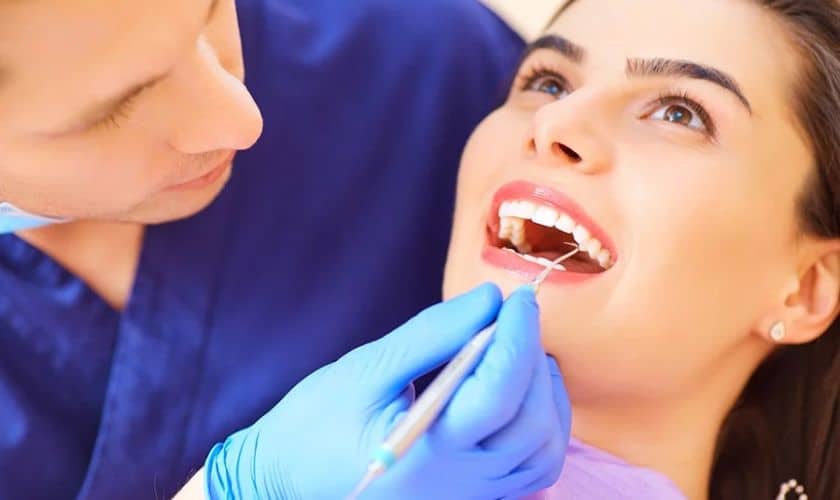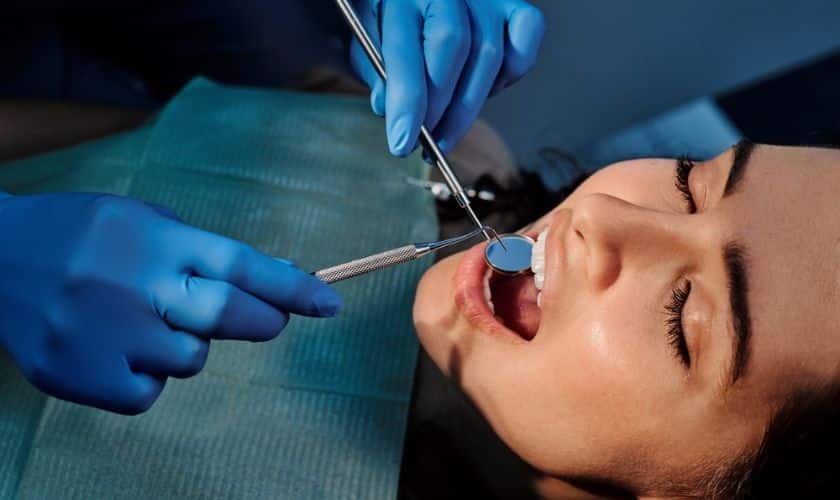Dental emergencies can be terrifying and overwhelming, leaving you panicked and unsure of what to do. From excruciating toothaches to broken or knocked-out teeth, these situations demand quick action to prevent further damage or pain. Staying calm during a dental emergency is crucial not just for your physical health but also for your emotional well-being. If you find yourself in one such crisis situation, don’t worry – we’ve got you covered! In this blog post, we’ll share expert tips and tricks on how to remain calm during a dental emergency so that you can stay composed and handle the situation with confidence. So sit tight as we walk you through some practical strategies that will make all the difference when it comes to managing dental emergencies like a pro!
What is a Dental Emergency?
If you experience a dental emergency, it’s important to remain calm and gather as much information as possible. Here are some expert tips for maintaining control during a dental emergency:
1. Know the basics. If you can, take notes about what happened when the emergency arose so that you can better remember instructions from your dentist or other medical professionals. This will help you stay organized and calm while awaiting further instructions.
2. pay attention to your body. When something unpleasant is happening, our bodies often round out the experience with dramatic physical responses such as increased heart rate and sweating. But these reactions only make matters worse and can actually delay treatment if not managed correctly. Use these physical cues to help orient yourself and stay calm: does your chest feel tight or heavy? Are you getting short of breath? Do you feel dizzy or lightheaded? If so, seek medical help immediately!
3. focus on your breathing. A sense of calmness and control comes from evenly distributing oxygen throughout the body, which is helped by good breathing habits. When we’re under stress, shallow breathing causes blood pressure to rise and interrupts our ability to think clearly. To lower blood pressure naturally: exhale slowly through your nose and mouth; keep your abdominal muscles relaxed; don’t hold your breath; and practice mindful meditation or yoga regularly.

4. think positively
Types of Dental Emergencies
When it comes to dental emergencies, there are a few things that you can do in order to ensure that you remain calm and collected. According to the American Association of Dental Assistants (AADA), the following steps can help lessen the anxiety that may come with a dental emergency:
Educate yourself about the situation. If you don’t know what is happening, your brain will start working overtime trying to make sense of it all. By learning as much as possible ahead of time, you can take some of the mystery out of what is going on and hopefully ease your mind a bit.
Prepare for pain. One of the most daunting aspects of any dental emergency is likely the prospect of intense pain. Anticipate this and prepare yourself for it by taking pain medications if necessary, wearing comfortable clothes, and relaxing your whole body as much as possible.
Stay positive. It’s easy to get overwhelmed during an emergency and start thinking negatively about everything that is happening. However, thinking positively can actually help take the edge off of unpleasantness and stressors. Try focusing on your breathing or affirmations such as “I am strong” or “Everything will be okay.”
Deal with one issue at a time. When something goes wrong during a dental emergency, it’s easy to become distracted by all of the chaos swirling around you. Instead, try to focus on one problem at a time and solve it until you are able to address the entire situation.
how to Handle Dental Emergencies
If you find yourself in a dental emergency, remember these tips from experts.
1. Make a plan. If you have an idea of what to do if dentist emergencies arise, taking some basic steps can help you stay calm and make the situation easier on yourself and your dentist. These include knowing which equipment is needed, having an emergency contact number or address handy, and creating an evacuation plan for your whole family in case of unexpected hospitalization.
2. Don’t be afraid to ask for help. While most people feel more confident when they’re dealing with a dental emergency on their own, asking for help may be the best decision in some situations. If you are feeling overwhelmed or scared, reach out to your dentist’s office staff or another close relative or friend for support.
3. Avoid drinking alcohol and caffeine. Both of these substances can hamper judgment and increase anxiety levels during a dental emergency. If stimulants are necessary for treatment (such as x-rays), drink plenty of water beforehand to stay hydrated and avoid nursing any hangovers for days afterward.
4. Pace yourself. Despite the fact that many people feel an intense need to rush during a dental emergency, doing so may only lead to chaos and frustration later on. Allow yourself plenty of time to gather all the necessary information, talk through the options with your dentist, and take any appropriate action before rushing into anything risky or damaging — like pulling teeth without proper consent or using too much force on.

How to Stay Calm During a Dental Emergency
There are a few things you can do to remain calm during a dental emergency:
-Know the facts about the condition: If you know what’s wrong with your tooth, it can help you stay calm. For example, if you think there’s a cavity, know that most cavities aren’t dangerous and don’t need to be fixed right away. And if you think there’s a cyst on your gum, know that these are generally harmless and can often be treated without surgery.
-Remind yourself that this is only an emergency situation: Even if your tooth is broken or dislodged, it’s still only an emergency situation. Don’t worry too much about the details – just focus on getting care for your tooth as quickly as possible.
-Avoid any unnecessary stress: This may sound obvious, but avoid stressing out about the situation. Instead, try to take deep breaths and relax your body as much as possible. This will help keep you calm and focused on the task at hand.
-Keep communication open: Discuss any concerns or fears with your dentist or doctor before the procedure begins. They may be able to address any potential worries or fears in advance so that everything goes smoothly during treatment.
Conclusion
If you ever find yourself in a dental emergency, know that there are certain things that you can do to remain calm and handle the situation accordingly. Following these expert tips will help you stay safe and healthy while waiting for your dentist to arrive. Finally, be sure to keep a positive attitude and remember that everything will work out in the end – even if it doesn’t look like it at first! Thanks for reading.
You should seek emergency dental care if you experience severe tooth pain, oral infections, bleeding or swelling in the gums, broken or chipped teeth, or any other dental issue that requires prompt attention.
If you have a dental emergency, you should contact your dentist or an emergency dentist as soon as possible. In the meantime, you can take over-the-counter pain medication, apply a cold compress to the affected area, and avoid eating or drinking anything that may aggravate the problem.
Emergency dentistry can be more expensive than regular dental care due to the urgent nature of the treatment. However, many dental insurance plans cover emergency procedures, and some dentists offer financing options to help make the cost more manageable.


